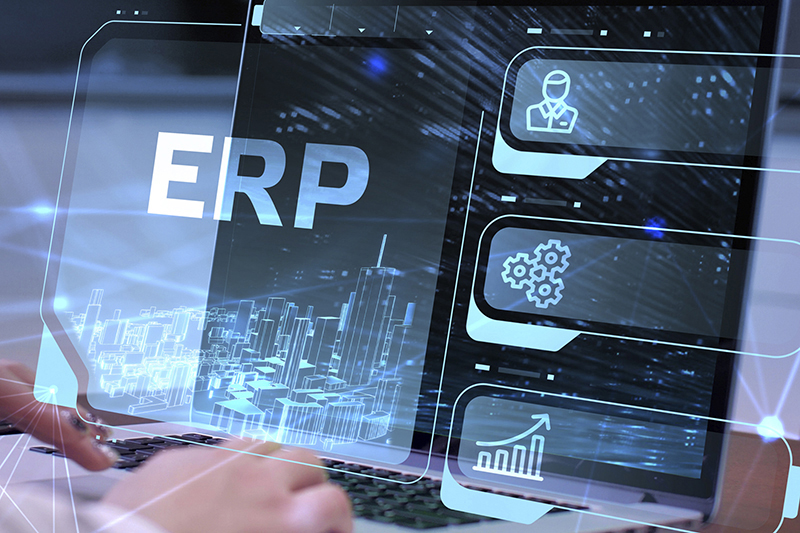The Significance of AI and ERP Systems in the Rubber Sector in Malaysia
Malaysia is quickly turning out to be a leading force in the global rubber market. The country’s rubber industry is on the brink of a revolution, as a result of the implementation of the latest technologies such as AI and ERP systems. With these tools being utilized, the firms undergo a reorganization of the way they manage production, allocate resources, and follow the rules of the international community.
AI and ERP Systems: A New Era for Rubber Production
The introduction of AI and ERP conjunctions into the Malaysian rubber industry sector is turning around the paradigm. AI agents, in particular, have been introduced to cut down on the decision-making steps, simplify operations, reduce delays and costs, and improve efficiency. These AI solutions are especially useful in managing the complexity of the supply chain related to rubber production.
Enterprise resources planning (ERP) systems are another determinant of this major change. With the bottom line of providing complete transparency of the production process, ERP systems allow caffeine free firms to optimize resources, cut costs, and become more productive. Connecting ERP to the rubber industry is a method that helps with effective management of materials, resources, and production schedules.

The Role of MRP and MES Systems
Material Requirements Planning (MRP) systems are vital for the proper functioning of ERP systems in the rubber sector. MRP systems enable the firms to forecast the demand and their inventory, while at the same time, be sure that the requisite materials will be at hand when needed. This is vital for the firm to produce goods in full swing and satisfy their customers.
Manufacturing Execution Systems (MES) as well are ramping up in number in Malaysia’s rubber industry. The very function of MES is to give out real-time information about the production process, and thus, by monitoring performance, the firms can find the reasons for the bottlenecks and they can also improve their products. Besides, MES systems also interlink the different departments of the factory and that results in improved general efficiency within the organization.
Assurance of Compliance and Environmental Protectionism
Compliance with global standards is one of the major issues facing firms in the rubber sector. The rubber firms in Malaysia are more and more inclined to the adoption of ISO standards so as to bring about quality and safety in their products. Meanwhile, AI and ERP systems are helping firms keep their golden standards by supplying the needed information and analytical tools in spatial and temporal units.
Environmental protectionism is a factor the businesses also take into account in their operations. Good by-products management is needed to properly deal with wastes and the state of the environment. The application of AI in conjunction with the ERP system has created a way for the firms to implement eco-friendly practices, which in turn helps these firms to comply with environmental regulations and have an impact on green development.
The Role of GenAI and DeepSeek in Rubber Industry
Generative AI (GenAI) and DeepSeek technologies are making significant inroads into the rubber industry. These advanced AI solutions are being used to analyze vast amounts of data, identify patterns, and provide insights that drive innovation. Indeed, GenAI and DeepSeek are helping firms develop new rubber products and improve existing ones.
The Impact of OpenAI on Rubber Industry
OpenAI is another key player in the AI sector, providing tools and technologies that are transforming the rubber industry. By leveraging OpenAI’s capabilities, firms can enhance their research and development efforts, optimize production processes, and improve product quality.
Challenges and Opportunities
It goes without saying, the integration of AI and ERP systems in Malaysia’s rubber industry presents both challenges and opportunities. Companies must invest in training and development to ensure that their workforce is equipped to handle these new technologies. Additionally, there is a need for collaboration between industry stakeholders to address issues such as data security and privacy.
Because of the rapid pace of technological advancements, firms must remain agile and adaptable. By embracing AI and ERP systems, Malaysia’s rubber industry is well-positioned to capitalize on new opportunities and maintain its competitive edge in the global market.
A cloud-native ERP widely adopted by business in Singapore, Malaysia, Hong Kong and China. With over 6,000 customers in the region, aiM18 gains positive feedbacks from customer across different sectors, from manufacturers, distributors, retailers, service providers to NGOs. The renowned no-code approach saves customer a big sum of customization costs and countless hours of implementation man-days.
About LAIDFU (Let AI Do For You)
An AI builder for enterprise to build their own AI agents.
Proprietary EKP (Enterprise Knowledge Partitioning) technology eases CEO’s concern about trade secret leakage which often occurs in most AI agents / chatbots in the market. EKP removes the hurdle of AI adoption by most companies in using sensitive corporate data.
Powered by no-code approach, deployment of LAIDFU incurs far less developers (and development costs) in comparison with other AI studios.